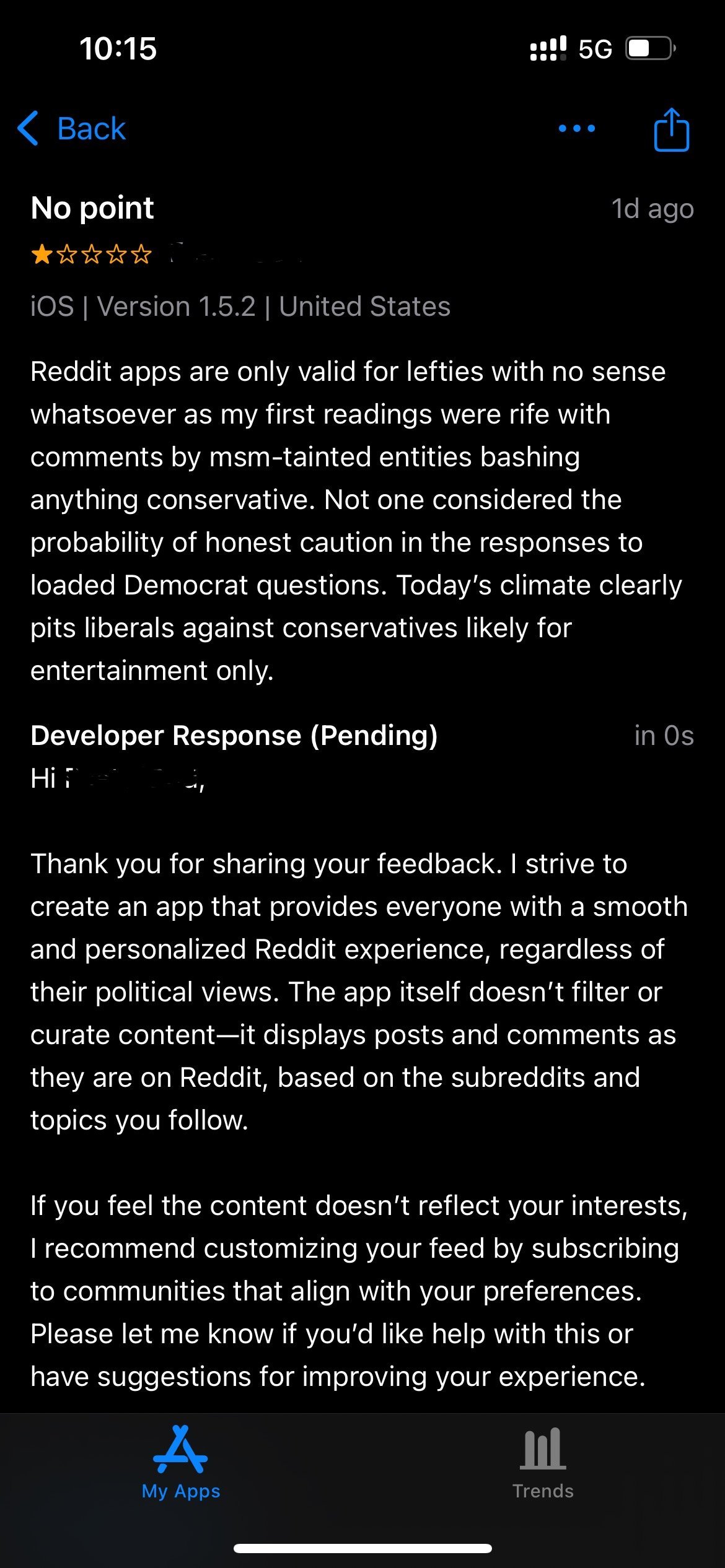“Piracy is Piracy” – Disney and Universal team up to sue Midjourney
-
- Disney and NBCUniversal have teamed up to sue Midjourney.
- The companies allege that the platform used its copyright protected material to train its model and that users can generate content that infringes on Disney and Universal’s copyrighted material.
- The scathing lawsuit requests that Midjourney be made to pay up for the damage it has caused the two companies.
Note that Disney and Universal pirate other people's stuff whenever they want.
Note also that all the Generative AI services are very protective of their big cistern of web-crawled data, say when China borrows it for DeepSeek.
Content, content everywhere and not a drop of principle.
-
Yes, that’s a good addition.
Overall, my point was not that scraping is a universal moral good, but that legislating tighter boundaries for scraping in an effort to curb AI abuses is a bad approach.
We have better tools to combat this, and placing new limits on scraping will do collateral damage that we should not accept.
And at the very least, the portfolio value of Disney’s IP holdings should not be the motivating force behind AI regulation.
Tbh, this is not a question about scraping at all.
Scraping is just a rather neutral tool that can be used for all sorts of purposes, legal and illegal.
Neither does the technique justify the purpose nor does outlawing the technique fix the actual problem.
Fair use only applies for a certain set of use cases and has a strict set of restrictions applied to it.
The permitted use cases are: "criticism, comment, news reporting, teaching (including multiple copies for classroom use), scholarship, or research".
And the two relevant restrictions are:
- "the purpose and character of the use, including whether such use is of a commercial nature or is for nonprofit educational purposes;"
- "the effect of the use upon the potential market for or value of the copyrighted work."
(Quoted from 17 U.S.C. § 107)
And here the differences between archive.org and AI become obvious. While archive.org can be abused as some kind of file sharing system or to circumvent paywalls or ads, its intended purpose is for research, and it's firmly non-profit and doesn't compete with copyright holders.
AI, on the other hand, is almost always commercial, and its main purpose is to replace human labour, specifically of the copyright owners. It might not be an actual problem for Disney's bottom line, but it's a massive problem for smaller artists, stock photographers, translators, and many other professions.
That way, it clearly doesn't apply to the use cases for fair use while violating the restrictions.
And for that, it doesn't matter if the training data is acquired using scraping (without permission) or some other way (without permission to use it for AI training).
-
I say this as a massive AI critic: Disney does not have a legitimate grievance here.
AI training data is scraping. Scraping is — and must continue to be — fair use. As Cory Doctorow (fellow AI critic) says: Scraping against the wishes of the scraped is good, actually.
I want generative AI firms to get taken down. But I want them to be taken down for the right reasons.
Their products are toxic to communication and collaboration.
They are the embodiment of a pathology that sees humanity — what they might call inefficiency, disagreement, incoherence, emotionality, bias, chaos, disobedience — as a problem, and technology as the answer.
Dismantle them on the basis of what their poison does to public discourse, shared knowledge, connection to each other, mental well-being, fair competition, privacy, labor dignity, and personal identity.
Not because they didn’t pay the fucking Mickey Mouse toll.
You did not read your source. Some quotes you apparently missed:
Scraping to violate the public’s privacy is bad, actually.
Scraping to alienate creative workers’ labor is bad, actually.
Please read your source before posting it and claiming it says something it doesn't actually say.
Now why does Doctrow distinguish between good scraping and bad scraping, and even between good LLM training and bad LLM training in his post?
Because the good applications are actually covered by fair use while the bad parts aren't.
Because fair use isn't actually about what is done (scraping, LLM training, ...) but about who does it (researchers, non-profit vs. companies, for-profit) and for what purpose (research, critique, teaching, news reporting vs. making a profit by putting original copyright owners out of work).
That's the whole point of fair use. It's even in the name. It's about the use, and the use needs to be fair. It's not called "Allowed techniques, don't care if it's fair".
-
- Disney and NBCUniversal have teamed up to sue Midjourney.
- The companies allege that the platform used its copyright protected material to train its model and that users can generate content that infringes on Disney and Universal’s copyrighted material.
- The scathing lawsuit requests that Midjourney be made to pay up for the damage it has caused the two companies.
Stupid lawsuit because anyone can do Ai now.
-
How so? Isn't it the same for the financial purposes?
Many times these keys are obtained illegitimately and they end up being refunded. In other cases the key is bought from another region so the devs do get some money, but far less than they would from a regular purchase.
I'm not sure exactly how the illegitimate keys are obtained, though. Maybe in trying to not pay the publisher you end up rewarding someone who steals peoples' credit cards or something.
-
Oh so when Big companies do it, it's OK. But it's stealing when an OpenSource AI gives that same power back to the people.
Midjourney isn't opensource, I can't run it on my PC, contrary to stable diffusion.
-
Yes I under that, but is Midjourney profiting off these characters? Ie are people paying for these services just so they can create images of these specific characters ? I think that’s the question that needs to be answered here.
I mean you’re not paying piecemeal as you would for an artist to create your commission of Shrek getting railed by Donkey, you pay for the service which in turns creates anything you tell it to.
It’s like I’m still not convinced that training AI with copyrighted material is infringement, because in my mind is not any different than me seeing Arthas when I was kid, thinking he was cool as fuck and then deciding to make my own OC inspired by him. Was I infringing on Blizzard’s copyrighted character for taking inspiration from its design? Was Mike Pondsmith infringing on William Gibson’s copyright when he invented Cyberpunk?
Yes, your fan art infringed on Blizzards copyright. Blizzard lets it slide, because there's nothing to gain from it apart from a massive PR desaster.
Now if you sold your Arthas images on a large enough scale then Blizzard will clearly come after you. Copyright is not only about the damages occured by people not buying Blizzards stuff, but also the license fees they didn't get from you.
That's the real big difference: if Midjourney was a little hobby project of some guy in his basement that never saw the the light of day, there wouldn't be a problem. But Midjourney is a for-profit tool with the express purpose of allowing people to make images without paying an artist and the way it does that is by using copyrighted works to do so.
-
You should totally play the game, but make sure that you pirate it so your money doesn't go to the thief who stole the rights from the creators.
Oh that's unfortunate. Well I don't mind not supporting people like that so I'll give it a go
-
- Disney and NBCUniversal have teamed up to sue Midjourney.
- The companies allege that the platform used its copyright protected material to train its model and that users can generate content that infringes on Disney and Universal’s copyrighted material.
- The scathing lawsuit requests that Midjourney be made to pay up for the damage it has caused the two companies.
Bite each others dicks off
-
Stupid lawsuit because anyone can do Ai now.
that's a shit take.
anyone can do AI now, but everyone can't profit from it like they can. that's why the lawsuit.
-
Drama. A business partner of the creators used an illegal loophole to obtain a majority stake of the company and then fired the actual creators because they where considered to volatile.
The universe of Disco Elysium is Kurvitz paracosm which he has been creating since his teens. Its a part of their identity that they are now barred from expressing.
Its a bit like if you told Tolkien halfway trough writing lotr that he is fired as the author and can never write anything about middle earth again.
intellectual property is grotesque.
under no circumstances a creator should be barred from his creation.
if shit like that happens I'd rather there not be any intellectual property at all





